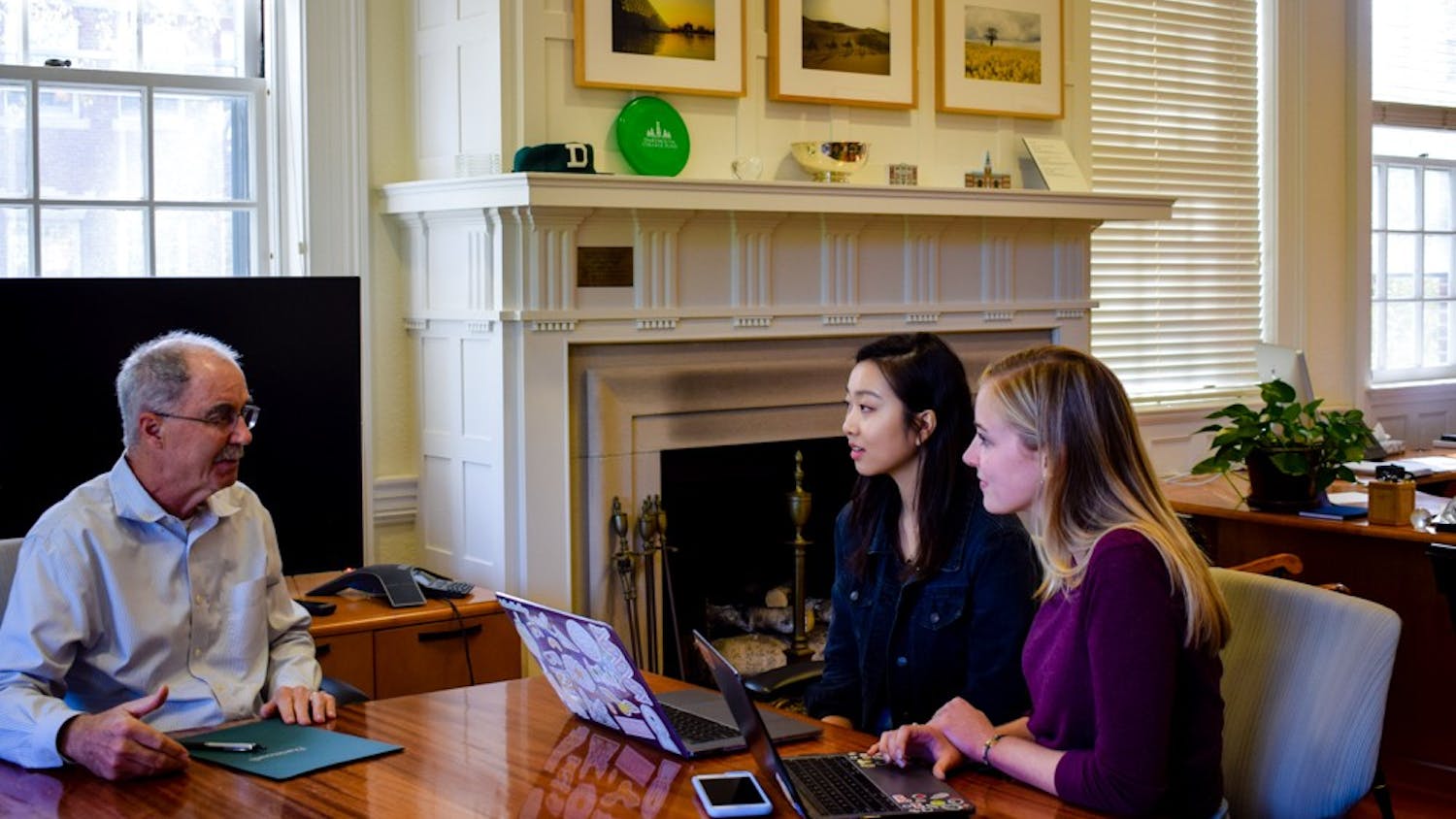Last week, the College partially reversed the new card access policy, reopening House centers and other social spaces to all students. This came after the College received almost universally negative input from students and worked with Student Assembly to ameliorate discontent. This Editorial Board has already criticized the policy changes at the beginning of this term, and we are pleased that the College has taken steps to undo what was clearly a misguided tactic.
We commend the College for taking action in the face of backlash against an unpopular and ineffective policy. The College has worked in a constructive manner with students to make this partial policy reversal swift and immediate. Significant credit is also due to Student Assembly, which has been responsive to student concerns and is working to uphold its mission as representatives of the student body during its negotiations with the College on the new policies.
However, while we believe both sides are doing their best in the interest of students, the manner in which the College has communicated policy changes — both the initial announcement and the more recent partial-reversal — implies an unwillingness by the College to take full responsibility for a mistaken decision.
The College announced its new card access policy on Sept. 13, the Friday before the beginning of fall term classes, and did not communicate any such change would come before that weekend. To announce such a policy at such a busy time made it seem, whether intentional or not, like the College was trying to sneak in a policy they knew might be unpopular among students, at a time that is already difficult and stressful for many.
The manner in which the College communicated the card access policy sends an implicit message of disorganization and poor planning, which may correlate to a lack of care for the impact on student life. For issues like the card access policy that affects every student on campus, earlier and constant communication is essential. While the policy was likely planned extensively, the fact that students were only informed of the change just before enactment sends a signal that the policy change was not well thought-out. Why wasn’t the announcement made earlier?
However, the College made a bigger mistake in the announcement of the partial reversal last week. While the Office of Residential Life was officially responsible for the policy change, it was not the one to make the announcement that social spaces would be reopened to all students. Instead, Student Assembly sent out an email to students informing them of the change, while no subsequent announcement was sent by ORL or any college official.
Why does this matter? The email, sent and signed by Student Assembly, was written “on behalf of” ORL. While Student Assembly has every right to take some credit for the policy reversal, it is very strange that they made the announcement on behalf of College officials. The policy reversal, although undertaken during negotiations with Student Assembly, is ultimately a decision that must be made by the College, and the College must be the one to make announcements on official policy changes that affect all of campus.
By allowing Student Assembly to make the announcement, the College has potentially set a bad precedent. In partially reversing the policy, the College clearly recognized that its initial decision to restrict access by House communities was mistaken. The email from Student Assembly, however, gives the appearance that the College was shirking its ownership of an unpopular policy and allows the College to distance itself from its responsibility to actively and clearly communicate to students how the College is being administered. Should students expect that other students, not the College, will be notifying campus about new policies in the future as well?
A clear email from ORL or another College official explaining the policy update would have demonstrated the College’s earnestness on responding to students. In the past, the College has had no issue communicating changes that have benefited the student body. But if the College is to take responsibility for the good, it must also be willing to take responsibility for the bad.
Students will be more inclined to respect policy changes that they disagree with if they are communicated effectively. In the fall of 2018, the College changed long-standing Homecoming traditions by shortening the bonfire, having students walk one lap instead of running multiple laps and strictly enforcing the “don’t touch the fire” policy. The College sent out multiple statements about the changes as early as spring of 2018 and maintained constant communication with the student body. The College prioritized thoroughly explaining the safety motives behind these changes. Though some students were discontent, they respected the decision: No attempts to touch the fire have been made in the past two years, though the large fencing around the fire may have been a deterrent.
When the College communicates with students, especially on significant matters, the methods it uses to do so signal its larger priorities, which should be the student body’s ability to participate in policies that will affect them. Sometimes the College will make a popular announcement, and sometimes it will make a decision widely unpopular with students. Either way, the College must be forthright and transparent in order to maintain students’ trust. Inevitably, the College will make mistakes, and it has lost some student trust due to the new card access policies. But when the College admits it was wrong, we can at least respect its honesty and desire to move forward.
The email from Student Assembly implied that a decision is forthcoming on whether the dorm access restrictions will remain in place. Whatever that ultimate decision may be, it is essential that the College itself make the announcement. If the College wants to regain trust with students on this issue, it must own up to its decisions.
The editorial board consists of the opinion editors, the executive editor and the editor-in-chief.



